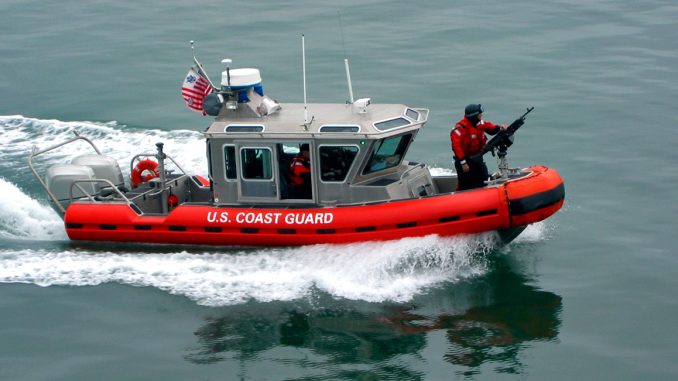
The city of Oakland, California, is dealing with pirates—not as a fantastical feature of a new Disney film, but as a genuine feature of liberal policies and weak district attorneys in American cities. They are not the sort of pirates swinging from ropes aboard tall ships like in “Pirates of the Caribbean,” but instead are criminals aboard dinghies who loot, steal, and sabotage, leaving a trail of graffiti, sunken ships, and hypodermic needles in their wake.
Recently, the Oakland Estuary, a 5.6-mile-long strait connecting to San Francisco Bay, has become a hotspot for crime as so-called pirates sail into marinas under the cover of night to plunder larger boats.
And unfortunately, the police response has been virtually nonexistent. Boat owners call about their pillaged or missing property to no avail.
Residents suspect Oakland’s homeless may play a role, as a lack of police presence enables them to live in stolen boats on the estuary. But their connection has yet to be proven, as there has been little investigation into the likely hundreds of thousands, if not millions, of dollars in damages the “pirates” are causing.
But the Yale-educated radical Alameda County district attorney, Pamela Price, is too far removed to understand the pirate problem. When Oakland residents call for help combatting the general increase in crime and express outrage that little is being done because of her “soft-on-crime” policies, she says the criticism is racist and continues to deflect about the growing trends in crime under her jurisdiction.
The police do not have the resources to assist, and the politicians in California have not made stopping piracy a priority, leading Oakland’s citizens, abandoned by their government, to band together to stop the pirates themselves with knives and guns.
Yet another reason two-thirds of Californians are considering leaving the state!
But not all hope is lost for the estuary, for one law enforcement authority has actually heard its constituency—the United States Coast Guard.
By a lucky stroke of fate, one of the largest Coast Guard facilities on the West Coast sits in the estuary. Law enforcement, along with search and rescue and counter-drug operations, is within the Coast Guard’s job description. Often, these three duties are carried out on the high seas—but this time, the issue is close to home.
While it may surprise some that the Coast Guard would help with this situation, the service has been fighting pirates for about 200 years. This is a duty that harkens back to its origins—since the Revenue Cutter Service, founded in 1790, was originally created to help collect revenue (as the name implies). One of its primary mandates was also to fight pirates off America’s coasts. It conducted its first anti-piracy action in 1793 in the Chesapeake Bay.
The Coast Guard has also conducted counter-piracy operations in the Atlantic, Caribbean, and Arabian Gulf, although those operations would look very different from the original 1793 operation. To deal with the pirates in the estuary, the modern Coast Guard has dedicated small boats and aircraft to random and recurring patrols to deter and intercept pirates. The news media will show whether this makes a difference in the weeks to come.
This initiative of the Coast Guard, the smallest and least-funded military branch, serves as a reminder that we are still the United States of America—that we still value law and order and justice.
These pirates are more evidence that progressive law enforcement policies do not, and cannot, work. They only throw locales into lawlessness and citizens into crisis. Everyday citizens, and major companies, too, are gradually realizing these corrupt policies do nothing but protect criminals and their illegal behavior. Certain punishment must be restored to our justice system—and politicians and prosecutors must be held accountable—to end the rise in crime in our country and re-establish a true sense of security for every American.
Protection of law-abiding citizens is an issue that all Americans must fight for, and the American people deserve to live in safe cities where the laws are actually enforced. The United States was once a strong law enforcement power and global symbol of righteousness—and can become that once again.
Have an opinion about this article? To sound off, please email letters@DailySignal.com, and we’ll consider publishing your edited remarks in our regular “We Hear You” feature. Remember to include the URL or headline of the article plus your name and town and/or state.

